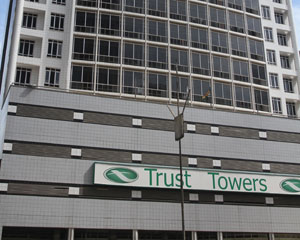
OVER 50% of troubled Trust Bank Corporation (TBC)’s depositors have submitted affidavits against the liquidation of the institution.
BY NDAMU SANDU
This comes at a time the High Court is supposed to hear the proposed liquidation of the institution on February 18.
Trust’s licence was cancelled in December after the central bank said it was abusing depositors’ funds and its capital position was deteriorating.
Deposit Protection Corporation chief executive officer, John Chikura was subsequently appointed provisional liquidator.
Last month, TBC obtained a lifeline after the High Court granted the institution three weeks to submit an opposing affidavit against the proposed liquidation.
TBC’s lawyer, Advocate Thabani Mpofu got the reprieve on the basis that depositors would not support any liquidation process, but would favour the injection of capital by an investor.
In the founding affidavit against the proposed liquidation TBC director, William Nyemba said the application for liquidation, supposedly to protect depositors’ interest, was a ruse.
- Police boat capsizes in Lake Kariba
- Man swept away at Lake Kariba narrates ordeal
- Two die after boat capsizes
Keep Reading
“Thankfully the depositors have seen through it and understand that only the liquidator and the applicant [RBZ] will be benefitted by liquidation. They have therefore resoundingly expressed themselves against the attempt to liquidate the respondent,” Nyemba said.
In the application for liquidation, RBZ has argued that the bank was abusing depositors’ funds and was insolvent. Nyemba argued that “no illegal acts have accompanied the use of depositors’ funds”. “[An] applicant which stole depositors’ funds cannot however make similar assertions,” Nyemba argued.
RBZ raided foreign currency accounts of companies and individuals to meet pressing national commitments at the height of the country’s economic crisis.
Nyemba said Trust had to deal with some challenges brought about by the current state of the economy.
However, he said RBZ’s approach “has been to magnify the challenges without considering the environment in which the respondent is operating”.
“That the environment is harsh is beyond doubt given that the applicant is itself insolvent and had to be saved by legislative intervention otherwise it would cease to exist. It is public knowledge that [the] applicant has failed to perform its role as lender of last resort and government has had to inherit its debt,” Nyemba said.
“I point this in order to show that if the approach were to be taken that every company which is technically insolvent must be wound up, surely no company would [operational] remain in Zimbabwe.”











